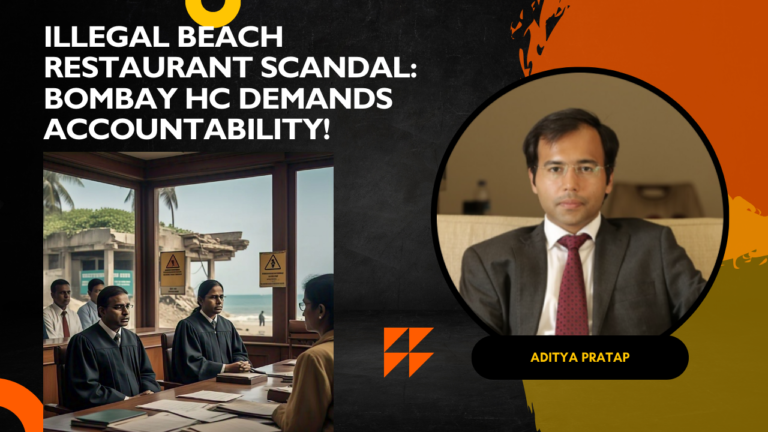
22 June 2018 – Nine years after the Salt Water Grille restaurant exited from the Chowpatty beach front in South Mumbai, the Bombay High Court on Thursday cleared the decks for action to be taken against persons responsible for the illegal construction.
A division bench of Justice Abhay Oka and Justice Riyaz Chagla directed the Maharashtra Coastal Zone Management Authority (MCZMA) to initiate action, including criminal proceedings, against all those responsible for violating the Coastal Regulation Zone rules and provisions of the Environment Protection Act.
“The Maharashtra government and BMC have to ascertain if any role was played by its employees and that of the MTDC in allowing the illegal construction on Choti Chowpatti beach. If any officers are held responsible, it will be appropriate to initiate action,” said the bench. The court has given the authorities three months to take action.
The bench was hearing a public interest litigation filed by city activist Amit Maru in 2008 over the failure by authorities to remove the restaurant with liquor facilities that had come up in Girgaum. “The area is classified as a CRZ-I area, and despite the fact that no construction was permitted on the land, the restaurant had come up,” said advocate Aditya Pratap, counsel for the petitioner.
The restaurant was pulled down in 2009, but the petitioner sought action against public officials who had allowed the construction to be put up in the first place. “Drishti Adventure Sports, which was granted permission to set up water sport facilities at Chowpatty, constructed the restaurant illegally in the highly restrictive CRZ-I area. No action was taken by any authority. The illegal construction could have come up only with the connivance of the municipal government officials,” said the advocate, pushing for personal action against officers to act as a deterrent to others.
Drishti had submitted a proposal to set up facilities for water sports at Chowpatty in 2001, which was granted by the state urban development department (UDD). The approval for a temporary structure came with a condition that the food counter area would not be used for cooking and only serve pre-cooked food.
In 2005, the UDD rejected permission for an eating house and cooking on the premises. The same year, the BMC wrote back to the collector saying it had not noticed any permanent structure. In 2009, when the MCZMA visited the site, it found facilities for cooking and heating food in the kitchen.
In May 2009, the collector ordered the pulling down of the illegal structures, and Drishti informed the authorities that they themselves would remove the offending structures.


About the Author
Aditya Pratap is a practicing lawyer and founder of Aditya Pratap Law Offices based in Mumbai. An alumnus of NALSAR University of Law, Hyderabad, he has over 11 years of experience and has handled numerous cases of public and private significance. For more insights, you can visit his website: adityapratp.in. Watch him in TV interviews.